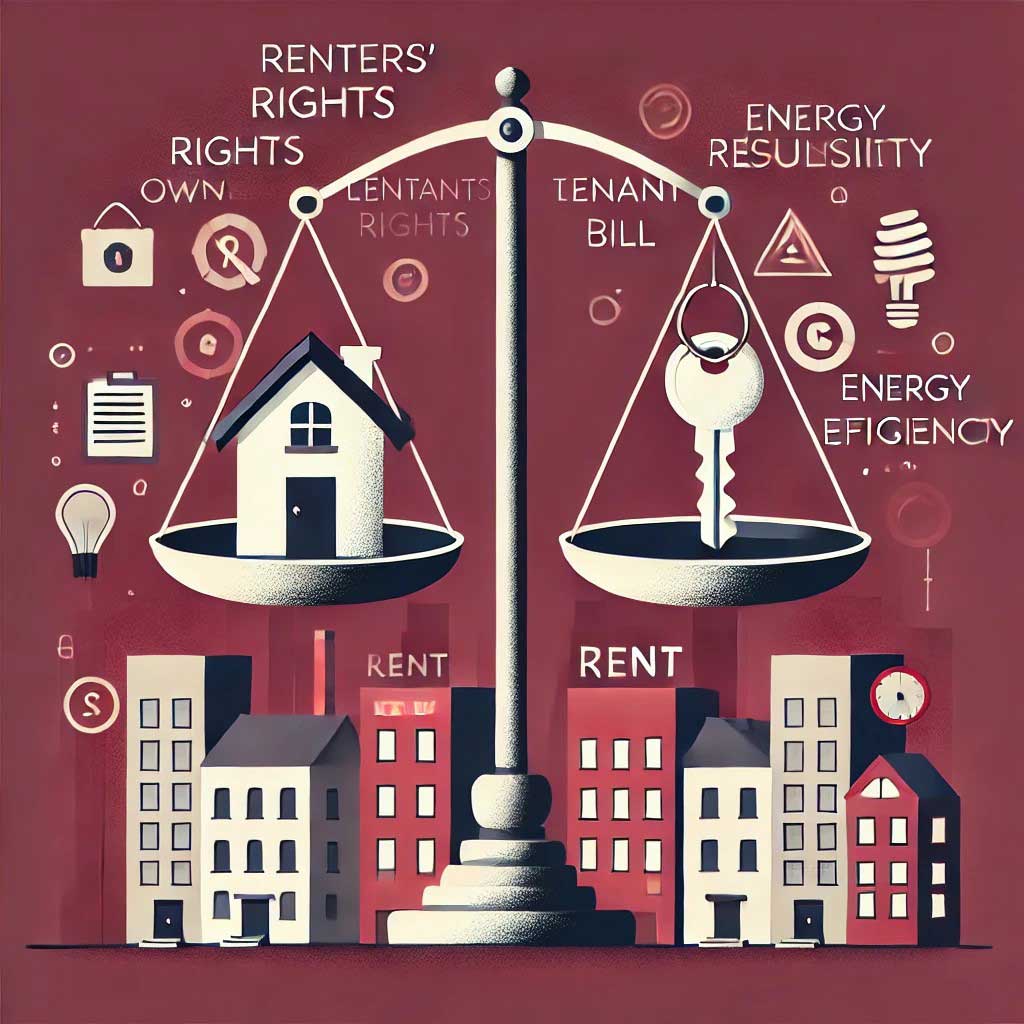1. Tenure and Section 21 Evictions
- New Tenancy Rules: All tenancies will now be periodic from the start, with tenancy periods limited to one month. The assured shorthold status will only be maintained if a Section 21 notice (no-fault eviction) was served before the Bill becomes law. Since Section 21 evictions will be abolished, landlords may seek to use it before the Bill is enacted.
- Impact on Landlords: The abolition of Section 21 removes a key tool for landlords, potentially reducing flexibility. Some may feel pressure to issue notices before the Bill is enacted to avoid being locked into long-term rental agreements.
2. Tenant's Right to Terminate
- Notice to Quit: Tenants will be able to terminate a tenancy from day one, with a standard two-month notice period. Shorter periods can be agreed upon, but any attempt to enforce a longer notice period will be invalid.
- Landlord Concerns: This flexibility may lead to properties being used as short-term accommodation, particularly in urban and tourist areas. Tenants can withdraw their notice, but only with landlord consent.
3. Arrears and Possession Grounds
- Rent Arrears: The notice period for rent arrears will extend from two weeks to four weeks, and landlords must wait for at least three months of arrears (up from two) to invoke mandatory eviction grounds.
- Risk of Loss: With no reforms to speed up the overloaded court system, landlords may face significant delays in recovering properties, leading to further financial losses due to unpaid rent.
4. Changes to Notice Periods
- Non-Fault Evictions: Notice periods for non-fault grounds, such as property redevelopment or sale, will increase from two months to four. Additionally, landlords cannot re-let or advertise a property for 12 months after using these grounds, and fines of up to £7,000 may be imposed for breaches.
- Impact on Sales and Occupation: The extended notice period may delay landlords' plans to sell or redevelop properties, and the new rules on re-letting impose additional restrictions.
5. Rent Levels and Rent Increases
- Rent Advertising: Landlords must now advertise properties with a fixed rent and cannot encourage or accept offers above this amount. This change aims to prevent "bidding wars," but may result in landlords setting higher initial rents.
- Statutory Rent Increases: All rent increases must follow the statutory process under Section 13, and any contractual clauses allowing rent hikes will be invalid. The notice period for a rent increase will extend to two months, and tenants can challenge rent increases with no risk of the rent being raised above the advertised level.
- Tribunal Involvement: Tenants can refer rent disputes to a tribunal, which will set rent based on the lower of the proposed or market value, potentially increasing tribunal workloads.
6. PRS Database and Compliance
- PRS Database: The Bill reinforces the requirement for landlords to register on a Private Rented Sector (PRS) database, listing essential regulatory information like Energy Performance Certificates (EPCs) and gas safety certificates. Non-compliance will restrict landlords from gaining possession of properties, except in cases of antisocial behaviour.
- Stronger Enforcement: Failure to register or comply with these requirements can now prevent landlords from evicting tenants, adding another layer of compliance.
7. Rent Repayment Orders (RROs)
- Expanded Grounds: RROs, which currently punish landlords for poor property conditions, will now apply to landlords misusing possession grounds or failing to register with the PRS database. The maximum penalty and claim period are both doubled, and superior landlords or company directors may also be held liable.
- Risks for Landlords: The expansion of RROs increases the financial risk for landlords who fail to comply with new obligations or attempt to misuse eviction processes.
8. Awaab’s Law and Property Conditions
- Awaab's Law Extension: Originally introduced for social housing, Awaab's Law will now apply to private landlords. It requires landlords to address health and safety hazards within strict timeframes, with the possibility of tenant compensation for non-compliance.
- Landlord Concerns: The extension of Awaab’s Law to the private sector could lead to an influx of claims, especially if landlords fail to meet deadlines for repairs or hazard mitigation.
9. Decent Homes Standard
- Minimum Property Standards: The Bill extends the Decent Homes Standard to private rentals, requiring landlords to maintain properties at a specified minimum quality. Breaches of the standard could result in enforcement notices and fines up to £7,000, or £40,000 for previous enforcement violations.
- Financial Impact: Landlords may face increased costs to ensure their properties meet the Decent Homes Standard. Failure to do so could lead to heavy fines and enforcement action.
10. Conclusion
The Renters' Rights Bill introduces significant reforms to the private rental sector, many of which enhance tenant security and protection. However, the Bill also raises concerns for landlords, particularly regarding the abolition of Section 21, extended notice periods, increased compliance burdens, and potential financial losses from rent arrears and tribunal cases. Landlords must also be prepared to meet stricter property condition standards and face stronger penalties for non-compliance.
The Bill is expected to become law by the summer of 2025, and its impact on the availability of housing and rent levels will be closely monitored in the years to come.









